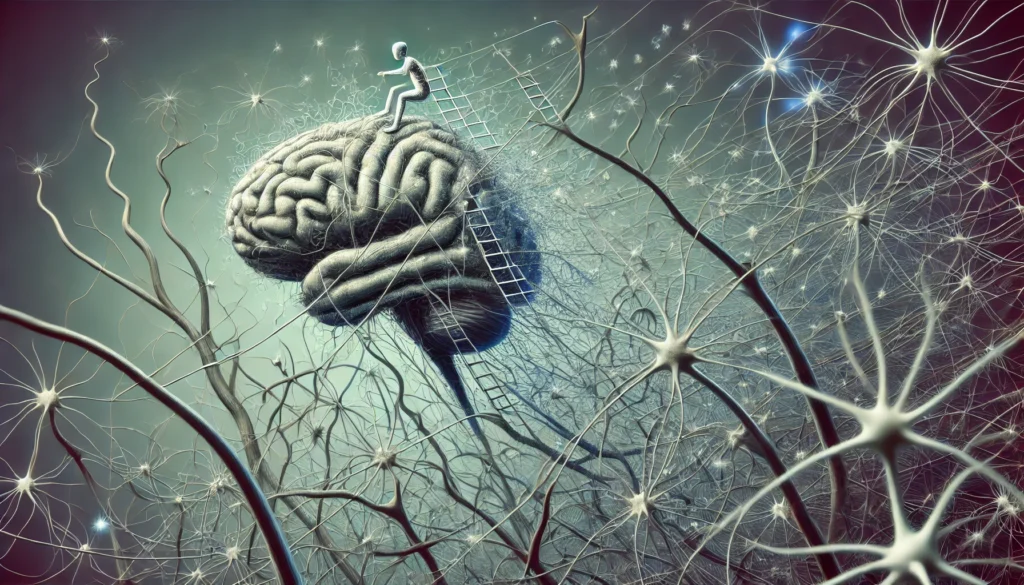Forgetting words while speaking is a common experience that can be both frustrating and puzzling. Whether you’re in the middle of a conversation or presenting at a meeting, suddenly losing your train of thought and struggling to find the right word can be disconcerting. While occasional forgetfulness is normal, frequent instances can be concerning, especially for those who rely heavily on verbal communication. In this article, we’ll explore the reasons why we forget words while speaking, delve into the scientific explanations behind this phenomenon, and offer insights into how you can improve word recall.
You may also like: Understanding the Science Behind Lost Memory
The Science of Forgetting Words
The process of retrieving words is complex and involves various areas of the brain. The brain’s language centers, primarily located in the left hemisphere, coordinate with memory networks to find and articulate words. When you experience difficulty remembering words, several factors could be at play:
Cognitive Load and Stress
The brain can only process a limited amount of information at any given time. When you’re under stress or trying to juggle multiple tasks, the cognitive load increases, making it harder for your brain to retrieve specific words. Stress hormones like cortisol can interfere with memory retrieval, leading to those moments where words seem to slip away.
Elevated stress levels can also lead to a phenomenon known as “brain fog,” where mental clarity is diminished, and word recall becomes challenging. This mental haze is often exacerbated by lack of sleep and poor nutrition, which further diminish cognitive abilities. Practicing stress management techniques can mitigate these effects and improve verbal fluency.
Another aspect to consider is how external pressures, such as deadlines or social expectations, can amplify stress. The anticipation of needing to communicate effectively under pressure can itself become a source of anxiety, creating a vicious cycle of stress-induced forgetfulness.
Age-Related Changes
It’s not uncommon to experience more frequent word-finding issues as you age. This phenomenon, often referred to as “tip-of-the-tongue” syndrome, becomes more prevalent after age 30. While it’s a normal part of aging, it can be exacerbated by factors like fatigue, stress, and multitasking.
As we age, the brain undergoes structural changes that can impact memory and language processing. These changes include the shrinkage of certain brain regions and a decrease in the number of neural connections. Engaging in activities that keep the brain active and healthy can help offset these age-related declines.
Moreover, age-related changes in word recall are not uniform across all individuals. Genetic predispositions, lifestyle choices, and overall health play significant roles in determining how sharply one’s cognitive abilities are affected. Understanding these personalized factors can aid in developing tailored strategies for maintaining cognitive vitality.
Neurological Factors
Certain neurological conditions can also affect word recall. For instance, aphasia, often caused by stroke or brain injury, impacts language processing and can lead to significant challenges in finding the right words. Other conditions such as Alzheimer’s disease or other forms of dementia can progressively impair language and memory.
In addition to these conditions, other neurological disorders like multiple sclerosis or Parkinson’s disease can also influence verbal memory. These disorders may affect the brain’s communication pathways, leading to difficulties in word retrieval and speech production.
Neurological factors are not limited to chronic conditions; even acute events like concussions can temporarily impair language abilities. Recognizing the signs of neurological involvement in word forgetfulness is crucial for seeking appropriate medical evaluation and intervention.

Common Scenarios of Forgetting Words
Understanding the contexts in which word-forgetting occurs can provide insights into its causes:
Mid-Sentence Forgetfulness
Forgetting words mid-sentence is a common experience and can be attributed to temporary disruptions in brain function. Distractions, interruptions, or anxiety can derail your train of thought, making it difficult to complete your sentence coherently.
Multitasking is another significant contributor to mid-sentence forgetfulness. When the brain is handling several tasks simultaneously, it may struggle to maintain focus on the task of speaking, causing lapses in word recall. Practicing single-tasking or focused attention can help reduce these instances.
Environmental factors, such as noisy surroundings or an overstimulating environment, can also contribute to mid-sentence forgetfulness. Creating a conducive environment for conversation by minimizing distractions can enhance verbal clarity and word retrieval.
Mixing Up Words
Mixing up words or using incorrect terms can result from divided attention or fatigue. When your brain is tired or overworked, it may struggle to efficiently organize and retrieve words, leading to verbal slips.
Language interference can also play a role in mixing up words, especially in bilingual individuals. The simultaneous activation of multiple language systems can sometimes cause confusion and result in the selection of incorrect terms.
Additionally, emotional states can influence word selection. High emotional arousal, whether from excitement or stress, can disrupt cognitive processes, leading to word mix-ups. Managing emotional responses through mindfulness or relaxation techniques can aid in maintaining verbal accuracy.
Early Onset of Forgetfulness
Some individuals begin experiencing word recall issues earlier in life. This can be tied to lifestyle factors such as poor sleep, inadequate nutrition, or high levels of chronic stress, all of which can impact cognitive function.
In younger individuals, digital overload from excessive screen time can contribute to cognitive fatigue and early onset forgetfulness. Balancing digital consumption with offline activities can help maintain cognitive health and word retrieval capabilities.
Moreover, psychological factors, such as anxiety or depression, can exacerbate early onset forgetfulness. Addressing these mental health concerns with professional support can improve cognitive function and word recall.
Strategies to Improve Word Recall
While occasional word forgetfulness is normal, there are strategies you can employ to enhance your verbal fluency:
Mindfulness and Focus
Practicing mindfulness can help reduce stress and improve concentration, allowing your brain to access words more easily. Techniques like meditation, deep breathing, and focused attention exercises can enhance cognitive function and aid in word retrieval.
Mindful communication involves being fully present in conversations, which can improve both listening and speaking abilities. By actively engaging in dialogue without distractions, individuals can foster better word recall and more meaningful interactions.
Incorporating mindfulness into daily routines, such as mindful eating or walking, can also promote overall cognitive health. These practices encourage a state of mental relaxation and alertness, which supports efficient language processing.

Brain-Boosting Nutrition
A balanced diet rich in omega-3 fatty acids, antioxidants, and vitamins can support brain health and improve memory. Foods like fatty fish, berries, nuts, and leafy greens are known for their cognitive benefits and can help maintain mental sharpness.
Hydration is another critical component of brain health. Dehydration can impair cognitive function, including memory and language abilities. Ensuring adequate water intake can support optimal brain performance and enhance word recall.
Additionally, certain herbs and spices, such as turmeric and rosemary, have been linked to improved cognitive function. Including these in your diet can provide additional support for maintaining verbal fluency and cognitive resilience.
Regular Physical Activity
Physical exercise increases blood flow to the brain and promotes the growth of new neural connections. Regular activity can enhance memory and cognitive function, making it easier to recall words when speaking.
Aerobic exercises, such as jogging or swimming, are particularly effective in boosting brain health. These activities stimulate the release of growth factors that nurture brain cells and improve communication between them.
Incorporating a variety of physical activities, including strength training and flexibility exercises, can provide comprehensive benefits for both the body and mind. A well-rounded fitness routine supports overall well-being and cognitive vitality.
Cognitive Exercises
Engaging in activities that challenge your brain, such as puzzles, reading, or learning a new language, can help strengthen memory and improve language skills. These exercises stimulate neural pathways and enhance cognitive resilience.
Brain training apps offer a convenient way to incorporate cognitive exercises into daily life. These apps often include games and challenges designed to target specific cognitive skills, including memory and verbal fluency.
Social activities that require communication and interaction, like group discussions or storytelling, also serve as valuable cognitive exercises. These activities promote language practice and help reinforce memory and recall abilities.
Future Implications of Word Forgetfulness
As we advance our understanding of the brain, new technologies and methodologies are emerging that may offer solutions to word recall issues. Research into nootropics, cognitive enhancers, and brain-training apps holds promise for those seeking to optimize their cognitive abilities and address verbal memory challenges.
Nootropics and Supplements
Nootropic supplements, which aim to enhance cognitive function, are gaining popularity among biohackers and those interested in boosting brain health. While more research is needed, certain supplements like Ginkgo biloba and Bacopa monnieri have shown potential in improving memory and focus.
Adaptogens, such as Rhodiola rosea and Ashwagandha, are also being explored for their ability to support cognitive function and reduce stress. These natural compounds may offer complementary benefits to traditional nootropics, enhancing overall mental performance.
The growing interest in personalized nutrition and supplementation highlights the potential for tailored approaches to cognitive health. As research continues, individuals may be able to customize their supplement regimens to address specific cognitive challenges, including word recall difficulties.
Brain-Computer Interfaces
Innovative technologies, such as brain-computer interfaces (BCIs), are being explored for their potential to improve communication and memory. These devices could offer new ways to interact with technology and enhance cognitive processes, potentially aiding those with word recall difficulties.
BCIs are being developed to assist individuals with severe communication impairments, offering them a means to convey thoughts and words more effectively. As these technologies evolve, they may become accessible tools for enhancing everyday verbal communication.
The integration of BCIs with other digital platforms could lead to advanced cognitive training programs. These programs may provide targeted exercises that improve specific language and memory skills, offering new solutions for those seeking to enhance word recall.

Conclusion
Forgetting words while speaking is a multifaceted issue that can arise from various factors, including cognitive load, stress, and age-related changes. While it’s a common experience, understanding the underlying causes can help alleviate concerns and guide strategies for improvement. By adopting lifestyle changes and exploring new technologies, you can enhance your verbal fluency and maintain sharp cognitive function.
Whether you’re a health and wellness coach, a science journalist, or a biohacker, this knowledge empowers you to better understand and address the complexities of language and memory. As research continues to unfold, staying informed about the latest developments in brain science and cognitive health can provide valuable insights into optimizing mental performance.
The journey to improving word recall is both personal and scientific, requiring a blend of self-awareness, lifestyle adjustments, and openness to new innovations. By embracing a proactive approach to cognitive health, individuals can navigate the challenges of word forgetfulness with confidence and clarity.
Further Reading:
Memory loss: When to seek help
Is it normal to forget words while speaking? And when can it spell a problem?
Help! I’m Already Forgetting Words
Important Note: The information contained in this article is for general informational purposes only, and should not be construed as health or medical advice, nor is it intended to diagnose, prevent, treat, or cure any disease or health condition. Before embarking on any diet, fitness regimen, or program of nutritional supplementation, it is advisable to consult your healthcare professional in order to determine its safety and probable efficacy in terms of your individual state of health.
Regarding Nutritional Supplements Or Other Non-Prescription Health Products: If any nutritional supplements or other non-prescription health products are mentioned in the foregoing article, any claims or statements made about them have not been evaluated by the U.S. Food and Drug Administration, and such nutritional supplements or other health products are not intended to diagnose, treat, cure, or prevent any disease.


